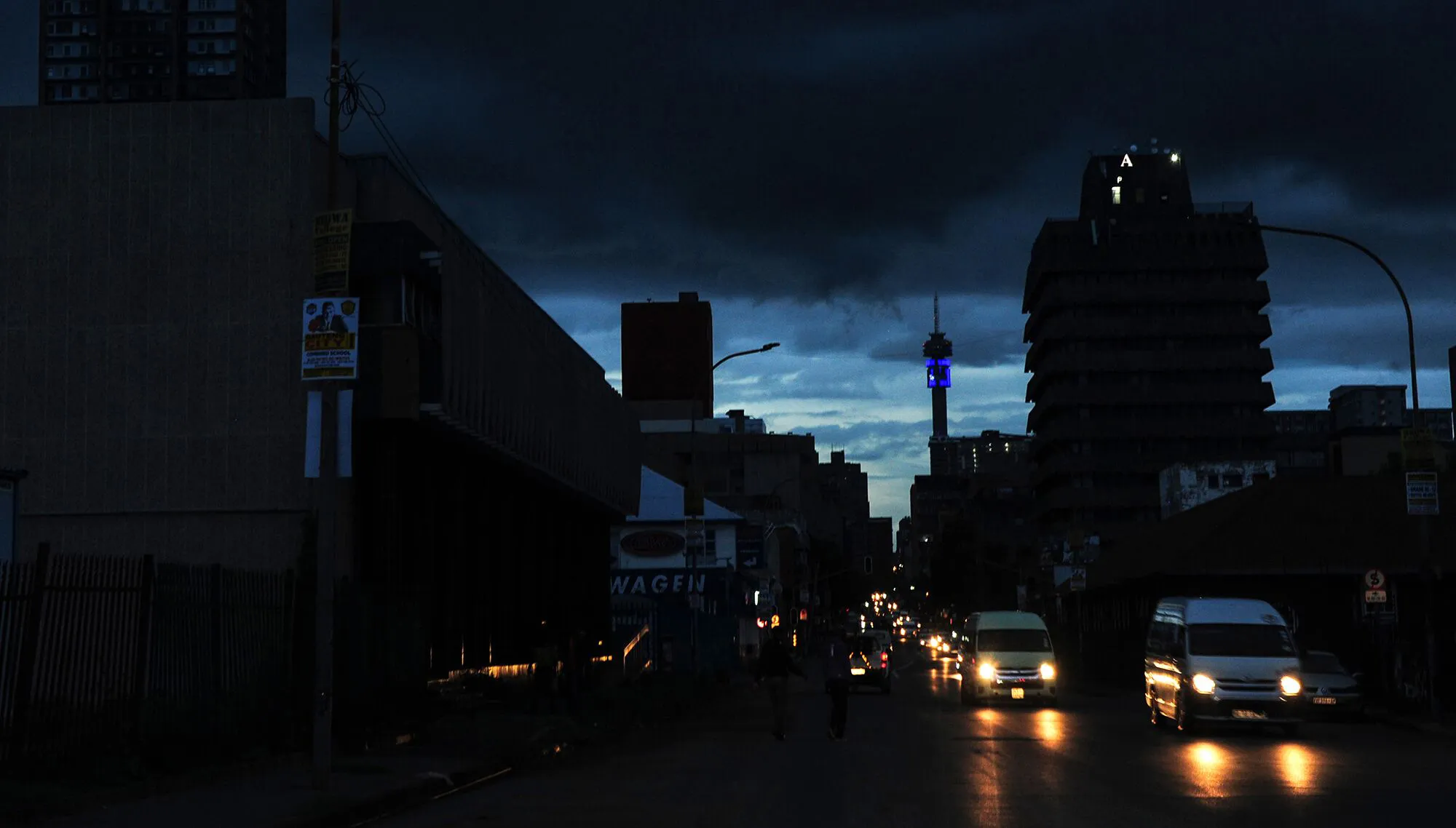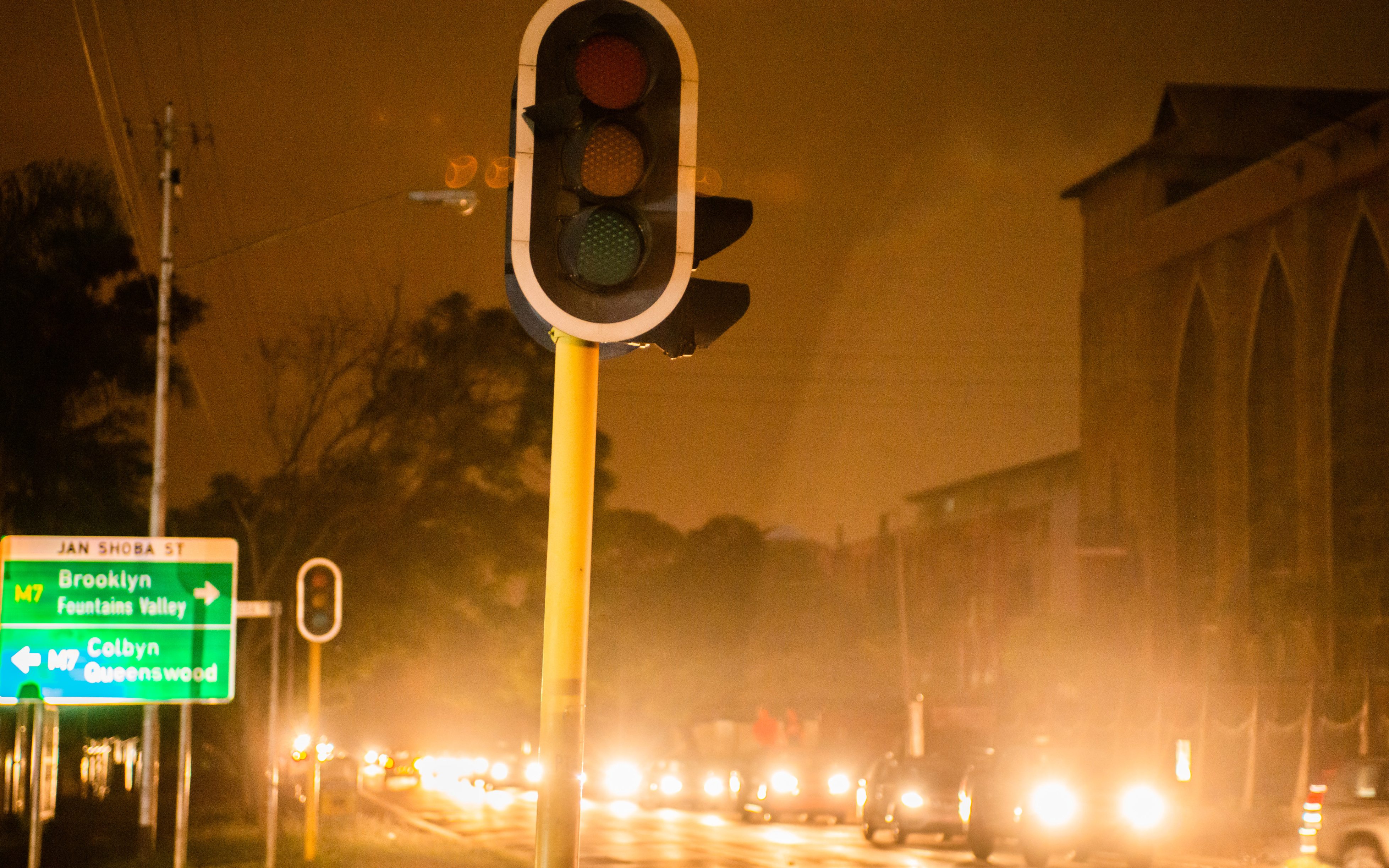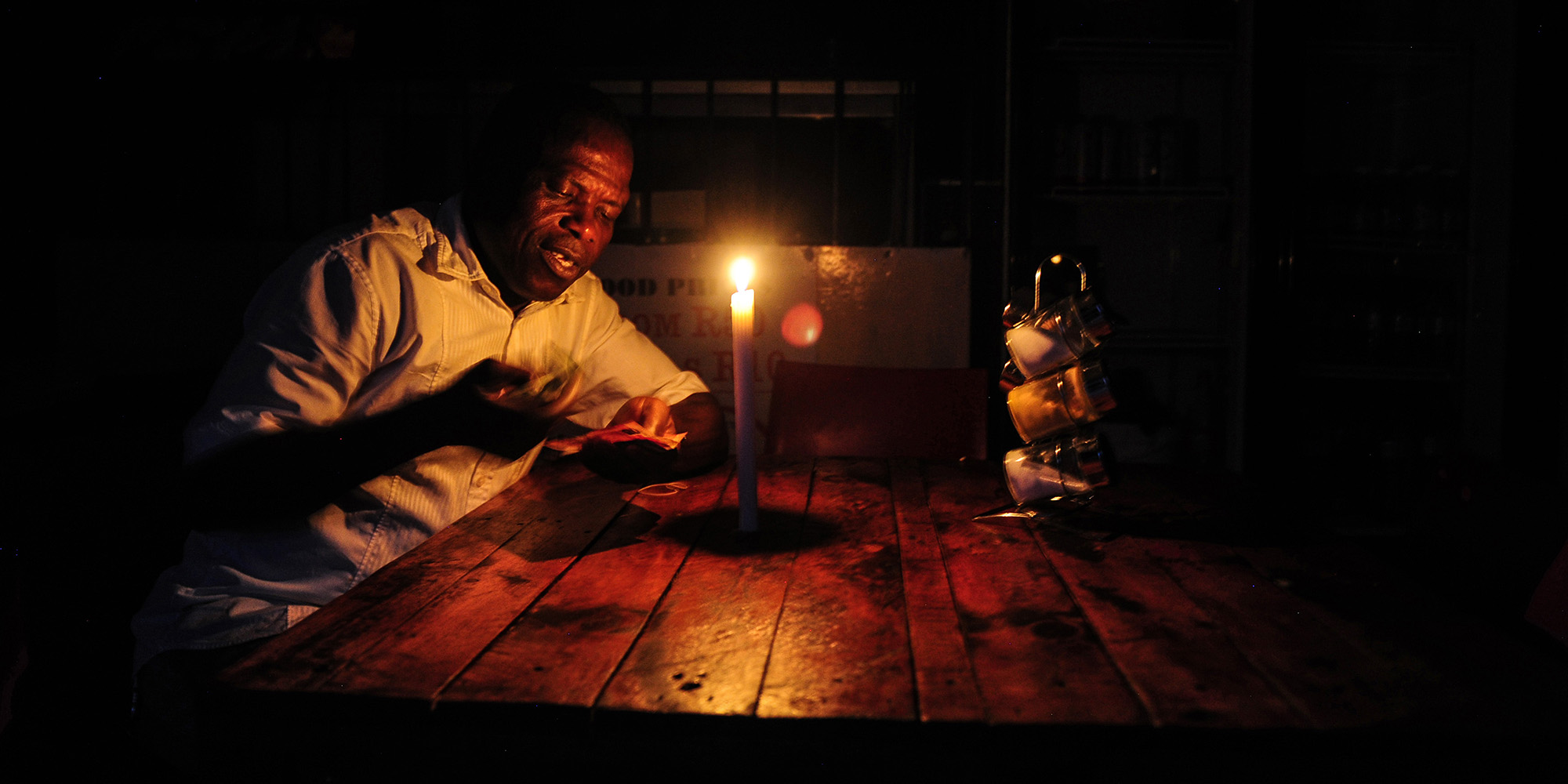The publication of draft protocols that spell out details for up to Stage 16 of rolling blackouts does not mean we are heading there, but is necessary to prepare the System Operator for if South Africa ever had to go beyond Stage 8 power cuts.
This was reiterated by Vally Padayachee, chairman of the National Rationalised Specifications (NRS) Association of South Africa, which drafted and adopted the proposed NRS 048-9 Edition 3, in June. The National Energy Regulator of South Africa (Nersa) published the draft document for public consultation, earlier this month.
The proposed Edition 3 provides protocols for an increase in rolling blackouts from the current 8 stages to 16 stages, with 24 hours of rolling blackouts occuring in a 32-hour period if South Africa were to reach Stage 16. Under Stage 6 rolling blackouts — the highest Stage the country has reached to date — customers can expect to be shed up to 12 times over a four-day period.
 Vehicles travel along a darkened street without lighting during a power outage in central Johannesburg, South Africa, on 13 February, 2023. (Photo: Leon Sadiki/Bloomberg)
Vehicles travel along a darkened street without lighting during a power outage in central Johannesburg, South Africa, on 13 February, 2023. (Photo: Leon Sadiki/Bloomberg)
If approved, the NRS 048-9 Code of Practice Edition 3 would implement the current Edition 2, which regulates rolling blackouts up to Stage 8.
The document, “NRS 048-9 Electricity Supply — Quality of Supply: Code of Practice — Load reduction practices, system restoration practices, and critical load and essential load requirements under system emergencies,” has been published for public comment.
The public and other stakeholders have until 22 September to make submissions on the document.
After all consultation processes have finished and Nersa has considered all relevant comments, the document will be approved for implementation as the NRS 048-9 Code of Practice Edition 3. This means, it would replace the current NRS 048-9 Code of Practice Edition 2, which regulates the “current load shedding or load reduction practices, system restoration practices and critical load and essential load requirements under power system emergencies.”
The original NRS 048-9 Edition 1 was published in 2010 after the need for such a code arose when rolling blackouts first hit the country in 2008. It regulated rolling blackouts up to Stage 4.
Since 2010, South Africa has continued to be crippled by power cuts, as Eskom’s ageing and poorly maintained fleet of coal-fired power stations’ ability to provide power steadily worsened. Speaking to Daily Maverick on Wednesday, Padayachee said the NRS began working on the current Code of Practice Edition 2, in 2017.
Nersa approved the NRS 048-9 Edition 2 in 2019, which regulates rolling blackouts up to Stage 8.
South Africa is enduring its worst year for power cuts by Eskom. In May, the power utility warned of possible Stage 7 and 8 outages this winter. But the country has not reached Stage 8 rolling blackouts to date, which would mean rotational power cuts of up to 16 hours in a 32-hour cycle.
Read more in Daily Maverick: Brace yourself for a long, cold, dark winter as SA teeters on the edge of Stage 7/8 rolling blackouts
Since Eskom’s coal-fired power generation fleet has deteriorated to a degree which may necessitate higher stages of rolling blackouts, Padayachee — in a statement in March 2023 — said the NRS had deemed it necessary to begin revising the NRS 048-9 Edition 2 Code of Practice.
“NRS 048-09 is a necessary revision of the Code because, since 2019, the performance of Eskom generation’s fleet coal-fired power stations has deteriorated to a level which may now necessitate National Central Control (NCC) and/or the [System Operator] to institute higher levels of load shedding beyond Stage 8,” said Padayachee.
 Slow-moving vehicles line the streets as traffic lights stand without power during a power outage period in Pretoria, South Africa, on Wednesday, Feb. 13, 2019. (Photo: Waldo Swiegers/Bloomberg via Getty Images)
Slow-moving vehicles line the streets as traffic lights stand without power during a power outage period in Pretoria, South Africa, on Wednesday, Feb. 13, 2019. (Photo: Waldo Swiegers/Bloomberg via Getty Images)
“The NRS Association, through its NRS 048-9 Work Group, is currently at an advanced stage in revising the current Edition 2 of the NRS 048-9 Code of Practice. This proposed revision will include planning and associated risk mitigation measures to implement load shedding beyond Stage 8, and could incorporate the whole base load, if necessary,” he continued.
The draft NRS 048-9 Edition 3 was adopted by the NRS Association in June 2023, and has now been released by Nersa to conduct a public consultation process on the proposed code of practice.
Stage 16 not a certainty
Speaking to Daily Maverick, Padayachee insisted that the proposed Edition 3 should not raise alarm, and should not be viewed as an indication that Stage 16 rolling blackouts are inevitable.
“Given the protocols we have in the system and the safety mechanisms we have in place — it’s very unlikely that we will get to Stage 16,” he said. But the draft NRS 048-9 Edition 3, he said, “prudently and professionally” prepares the System Operator for if there ever was an escalation in load shedding beyond Stage 8.
“If we had to go beyond Stage 8, then we would run into what we call ‘emergency mode or contingency mode’ because we don’t currently have formalised plans beyond Stage 8, under Edition 2,” he said.
The draft NRS 048-9 Edition 3 provides “formalised protocols” for beyond Stage 8, which takes away the emergency and the contingency measures. DM
Written comments can be sent to NRSComments@nersa.org.za; hand-delivered to Kulawula House, 526 Madiba Street, Arcadia, Pretoria, 0083; or posted to P.O. Box 40343, Arcadia, 0007, Pretoria, South Africa.




 Slow-moving vehicles line the streets as traffic lights stand without power during a power outage period in Pretoria, South Africa, on Wednesday, Feb. 13, 2019. (Photo: Waldo Swiegers/Bloomberg via Getty Images)
Slow-moving vehicles line the streets as traffic lights stand without power during a power outage period in Pretoria, South Africa, on Wednesday, Feb. 13, 2019. (Photo: Waldo Swiegers/Bloomberg via Getty Images) 